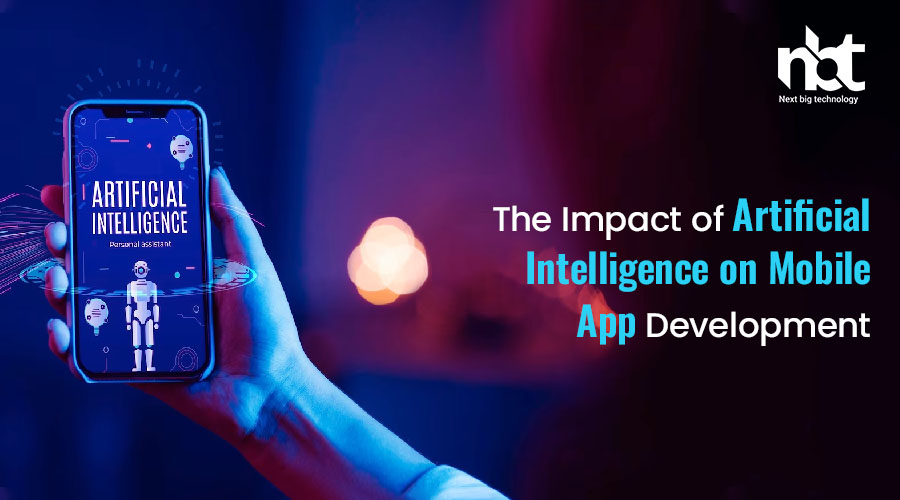Artificial Intelligence (AI) has transcended the realm of science fiction, making profound strides in various industries. In the dynamic landscape of technology, one area where AI’s impact is particularly pronounced is mobile app development. This article delves into the evolving synergy between AI and mobile app development, exploring the transformative effects on user experiences, development processes, and the future landscape of applications.
Table of Contents
Introduction
In a digital era marked by technological advancements, AI has emerged as a catalyst for innovation. Mobile app development, once a linear process, has undergone a paradigm shift with the integration of AI. This article aims to unravel the intricate relationship between AI and mobile app development, shedding light on the evolution, current state, and future possibilities.
Evolution of Mobile App Development
Historical Perspective
The journey of mobile app development traces back to the early days of smartphones. Initially, developers relied on conventional methods, facing limitations in terms of efficiency and user engagement.
Traditional Development Methods
Traditional app development involved manual coding and testing, leading to prolonged development cycles. The need for a more agile and responsive approach became evident as user expectations evolved.
Emergence of AI in the Development Process
The advent of AI introduced a dynamic element into the development process. From automating repetitive tasks to enabling predictive analysis, AI became a driving force behind efficiency and innovation in mobile app development.
How AI is Revolutionizing Mobile App Development
Streamlining the Development Lifecycle
AI has streamlined the app development lifecycle by automating mundane tasks and optimizing resource allocation. This not only accelerates the development process but also minimizes errors, resulting in robust and reliable applications.
Enhancing User Experience through Personalization
Personalization has become a cornerstone of successful mobile apps. AI analyzes user behavior, preferences, and interactions to deliver tailored experiences, making apps more intuitive and engaging.
Improving App Performance and Efficiency
AI algorithms optimize app performance by analyzing usage patterns and adjusting resource allocation accordingly. This ensures that apps run smoothly even on devices with varying specifications.
Accelerating Time-to-Market
With AI expediting various stages of development, the time-to-market for mobile apps has significantly decreased. This agility is crucial in a competitive landscape where being first to market can determine success.
AI-Powered Features in Mobile Apps
Natural Language Processing (NLP) and Chatbots
AI-powered chatbots, fueled by NLP, provide users with a conversational interface. This not only enhances customer support but also adds a human touch to app interactions.
Image and Facial Recognition
Mobile apps now leverage AI to recognize and analyze images and faces. This is evident in applications ranging from social media platforms to security and authentication systems.
Predictive Analytics for User Behavior
AI’s predictive capabilities allow apps to anticipate user behavior, providing personalized recommendations and content. This not only enhances user satisfaction but also boosts app engagement.
Virtual Assistants and Voice Recognition
Voice-activated virtual assistants, driven by AI, have become integral to many mobile apps. This hands-free interaction adds convenience and accessibility to the user experience.
Challenges and Considerations
Ethical Considerations in AI-Powered Apps
The integration of AI brings forth ethical considerations, such as bias in algorithms and the responsible use of user data. Developers must navigate these challenges to ensure ethical and inclusive app experiences.
Data Privacy Concerns
As apps become more data-dependent, ensuring the privacy and security of user data is paramount. Striking a balance between personalized experiences and data protection remains a challenge.
Balancing Automation and Human Touch
While AI enhances efficiency, striking a balance between automation and the human touch is essential. Maintaining a connection with users and understanding nuanced contexts requires a delicate blend of AI and human interaction.
The Future of AI in Mobile App Development
Emerging Trends and Technologies
The future promises even more exciting trends, such as augmented reality (AR) integration, advanced AI models, and increased automation in app development.
Anticipated Advancements and Innovations
As AI continues to evolve, anticipations include improved natural language processing, enhanced machine learning models, and breakthroughs in solving complex problems through AI-driven solutions.
Case Studies
Successful Examples of AI-Driven Mobile Apps
- Siri: Redefining Virtual Assistants
- Examining how Siri has transformed the virtual assistant landscape.
- Impact on user interactions and expectations.
- Netflix: AI in Content Recommendation
- Analyzing how Netflix utilizes AI for personalized content recommendations.
- The role of AI in enhancing user engagement and satisfaction.
SEO Strategies for AI-Enhanced Apps
Optimizing App Content for Search Engines
Crafting SEO-friendly content within the app is crucial for visibility. Incorporating relevant keywords and metadata enhances the app’s discoverability.
Leveraging AI in App Store Optimization
AI can play a pivotal role in optimizing app store listings. Analyzing user reviews and preferences helps in tailoring the app’s presentation for maximum impact.
Importance of Responsive Design for Mobile SEO
With an increasing number of users accessing apps on various devices, responsive design ensures a seamless experience. This not only improves user satisfaction but also positively impacts mobile SEO rankings.
Conclusion
In conclusion, the impact of artificial intelligence on mobile app development is profound and multifaceted. From revolutionizing development processes to enhancing user experiences, AI has become an indispensable asset in the app development landscape. As we navigate the future, the synergy between AI and mobile apps will continue to shape innovative solutions and redefine the boundaries of what is possible.
Thanks for reading our post “The Impact of Artificial Intelligence on Mobile App Development”. Please connect with us to know more about The Impact of Artificial Intelligence.






















